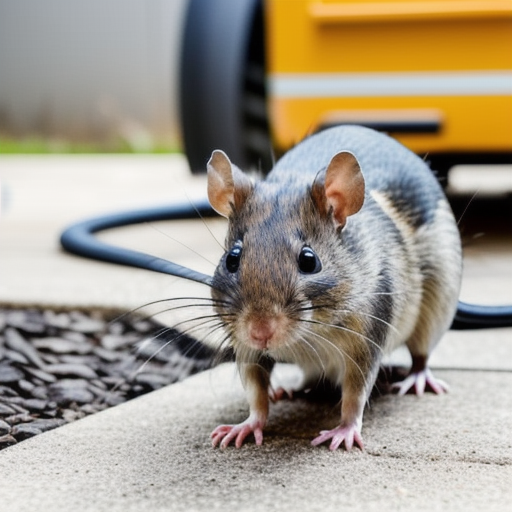

Rodent Exclusion Explained: Protect Your Houston Business from Costly Infestations
What is Rodent Exclusion?
Rodent exclusion is the process of preventing rodents from entering and infesting a property. This includes blocking all entry points and implementing measures to deter rodents from entering the property. In a commercial setting, rodent exclusion is an important aspect of pest control to prevent infestations that can result in costly damage and pose health risks to employees and customers.
Why is Rodent Exclusion Important for Houston Businesses?
Houston is home to various types of rodents, including rats and mice, which are common pests in commercial environments. These rodents can easily access buildings through small cracks and holes, and once inside, they can cause significant damage to structures, equipment, and inventory. They can also spread diseases through their droppings and urine, putting businesses at risk for health code violations and potential lawsuits.
How Does Rodent Exclusion Work?
The first step in rodent exclusion is conducting a thorough inspection of the property to identify potential entry points. These can include gaps in the building's foundation, holes in walls or roofs, and openings around pipes and utility lines. Once all entry points are identified, they are sealed off using materials like steel wool, metal plates, and wire mesh. Traps and baits may also be used to capture and remove any rodents already present on the property.
Rodent Exclusion Best Practices for Houston Businesses
To effectively protect a business from rodents, it is essential to implement rodent exclusion best practices. Regular inspections should be conducted to identify and address any potential entry points. Outdoor trash bins and dumpsters should be tightly sealed, and any excess clutter or debris should be removed from the property. It is also important to properly store and dispose of food items to eliminate potential food sources for rodents.
Benefits of Rodent Exclusion for Houston Businesses
The benefits of rodent exclusion for Houston businesses are numerous. By preventing rodents from entering a property, businesses can avoid the costs associated with rodent infestations, such as property damage, cleanup and remediation, and potential fines and legal fees. It also helps maintain a safe and healthy environment for employees and customers, protecting the business's reputation and ensuring compliance with health codes. In conclusion, rodent exclusion is a crucial aspect of pest control for Houston businesses. With the proper measures in place, businesses can prevent costly infestations and maintain a clean, safe, and healthy environment for their employees and customers. Regular inspections and implementing best practices for rodent exclusion can help businesses stay ahead of potential pest problems and save money in the long run. Don't wait for a rodent infestation to occur – take action to protect your business today.
Latest Posts
Ready to pull the trigger? Get a quote today.










